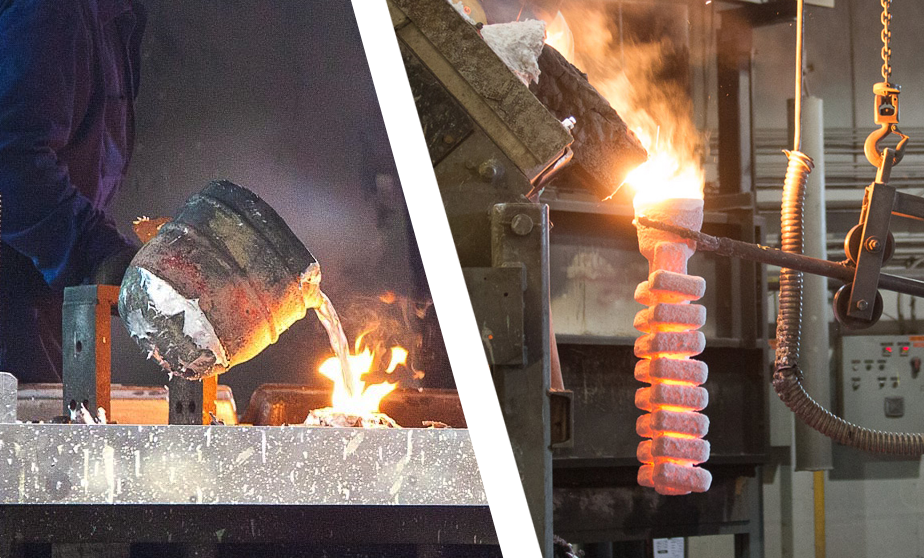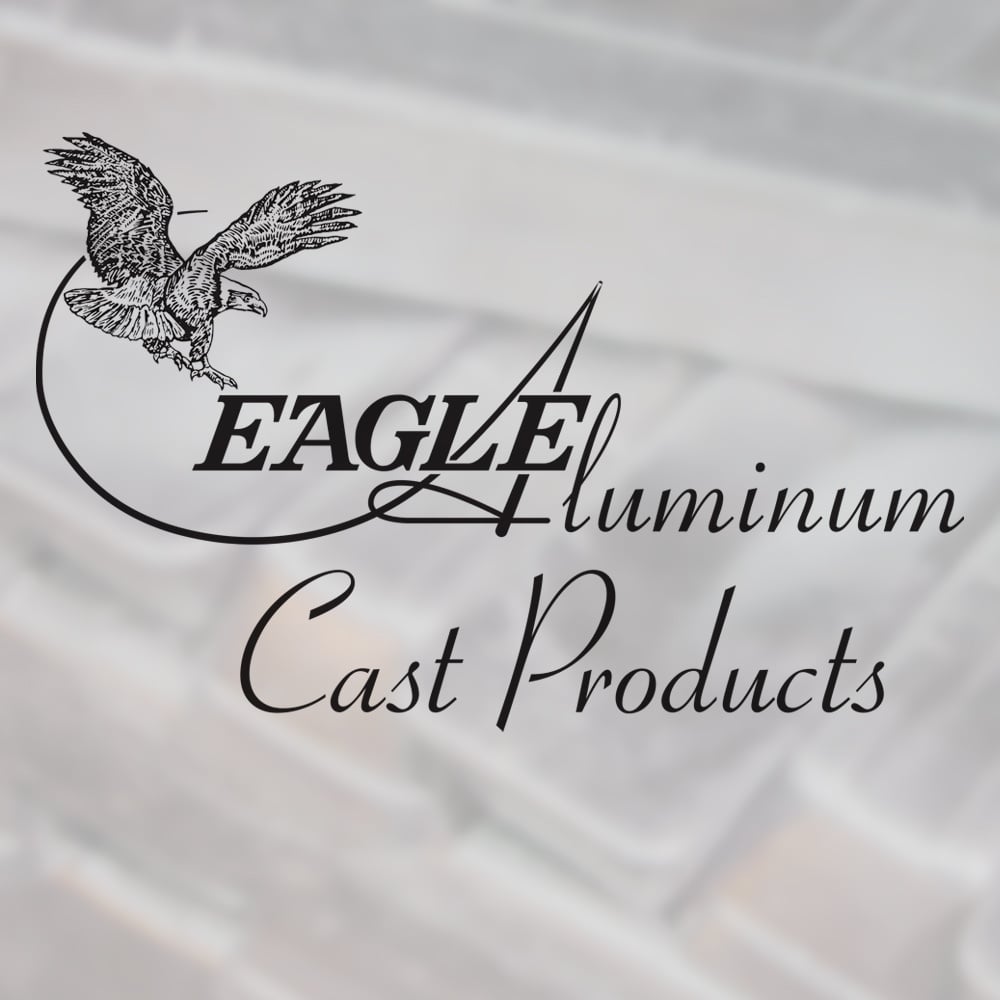Aluminum Casting vs. Steel Casting: Choosing the Right Alloy for Your Cast Products

In modern metalcasting, steel and aluminum are two contenders for the top material of choice. Thousands of manufacturers around the world rely on both metals to produce strong, light and corrosion-resistant metal parts and products.
You'll find hundreds of different grades and alloys for both steel and aluminum, and each has its specific advantages and disadvantages. For this comparison, we'll focus on differences between aluminum and steel alloys in general, rather than zooming in on differences between specific alloys.
Aluminum Vs. Steel: Strength
Steel is generally stronger than aluminum, but some aluminum alloys are stronger than some types of steel. For weight bearing structural elements, or applications that require considerable strength for operation, steel is often the first choice. Aluminum can offer weight advantages, but must be carefully engineered to meet strength requirements.
This video illustrates the difference in crash performance between two nearly identical truck bodies, one steel and one aluminum.
- Winner: Steel
Aluminum Vs. Steel: Weight
Aluminum is much less dense than steel, as are most aluminum alloys. In fact, aluminum is often 2.5 - 3 times less dense than steel. This lower density translates into a notable weight advantage. Aluminum products can improve strength and stiffness by increasing material in vital areas, while still maintaining an overall lighter weight.
- Winner: aluminum
Aluminum Vs. Steel: Corrosion Resistance
Depending on the specific alloys in question, this matchup could go either way. Aluminum is naturally highly corrosion resistant, and able to withstand long periods outdoors and in wet environments. Carbon steel can be easily corroded, and often must be painted or sealed to function properly. Stainless steel, in contrast, exhibits superior corrosion resistance not only in comparison to carbon steel, but in comparison to aluminum as well.
In fact, it's a common myth that aluminum doesn't corrode. It's true that aluminum doesn't rust–the red color of rust comes from iron in the alloy–but when placed in acidic or basic environments, aluminum will corrode faster than some other alloys.
For a closer look at the corrosion resistance of 8 popular casting alloys, check out our previous blog post on casting metals.
- Winner: Tie
Aluminum Vs. Steel: Cost
Cost varies widely between different alloys, and the global market is always fluctuating. Steel is based on iron ore, and aluminum is extracted from bauxite ore. Both are relatively common, but iron is generally less expensive to source. Both metals can also be recycled, often at a lesser cost than processing new raw materials. As a general rule, aluminum is less expensive than stainless steel, and more expensive than carbon steel.
The cost of a specific alloy depends largely on its composition and, as we're seeing in recent news, policies surrounding the importation and extraction of materials.
- Winner: Tie
Aluminum Vs. Steel: Heat Resistance
Aluminum has a much lower melting temperature than steel, and so aluminum products are not as heat resistant. While steel doesn't melt until it reaches temperatures of around 2500 degrees F, aluminum begins to soften considerably at 900 degrees F. As a result, steel can be used in high-heat applications that aluminum cannot.
- Winner: steel
Aluminum Vs. Steel: Machinability
After a casting is removed from the mold, it often undergoes several additional processes to prepare it for use. Machinists bore holes, tap threads, face critical areas and generally remove material until the product is exactly the right shape.
Steel, in general, is much harder than aluminum. While this offers advantages in strength and durability, it's a drawback for machining. Steel can be more time consuming to machine, and often requires more expensive tools to cut away material.
- Winner: Aluminum
Aluminum Vs. Steel: Castability
If you're producing cast products and wondering if steel or aluminum is a better choice, the answer might depend on the casting process you want to use. Aluminum has a much lower melting temperature than steel. As we've already mentioned, this property results in less heat resistance. The flipside is that aluminum is much more castable than steel.
Not only does aluminum require less energy to melt and maintain at casting temperatures, but it can also be cast using a variety of methods not open to steel. Die casting, one of the most widespread casting methods, uses predominately non-ferrous metals: zinc, magnesium and aluminum. Likewise, molds for the versatile process of permanent mold casting are often made from steel. Aluminum is a great choice for permanent mold casting, while ferrous alloys, like steel, are too hot in their molten state.
- Winner: Aluminum
Conclusion: Aluminum Vs. Steel Casting
As you can see, there are a wide variety of factors to consider before deciding which material, aluminum or steel, is right for your product. If you're not sure how to proceed, it's best to consult an expert who knows about casting and can answer your questions on the spot.
For more info on metalcasting methods for various alloys and product types, check out our Metalcasting & CNC Machining Process Guide:
Tags: Metalcasting, Machining, Aluminum Casting, Aluminum, Materials

Written by Jim Smith, Jr.
Jim Smith, Jr. is the Technical & Sales Manager at Eagle Aluminum Cast Products in Muskegon, MI. Given his father’s career as a mechanical engineer, Jim grew up in foundries and often used castings his father brought home as toys. During his college years and into his first jobs, Jim developed skills in quality, engineering and customer service. Jim joined Eagle Aluminum in 2012 as a Technical Analyst and now manages all of the company’s Technical and Sales functions.




